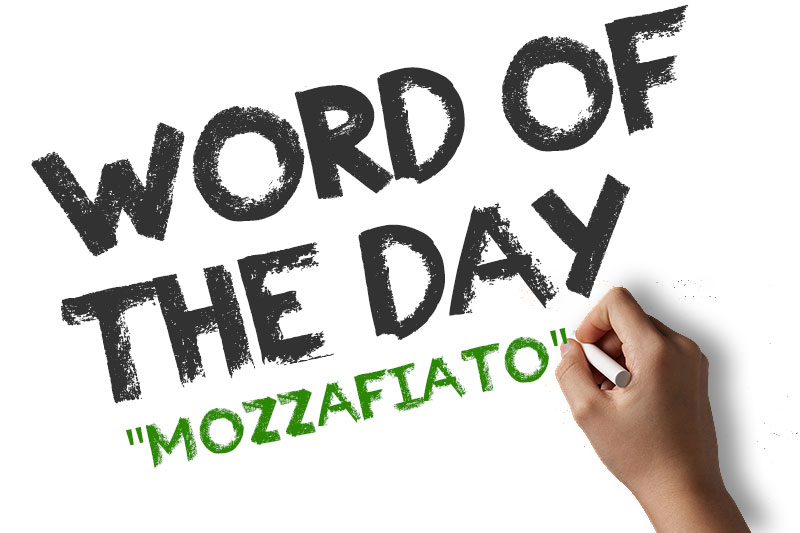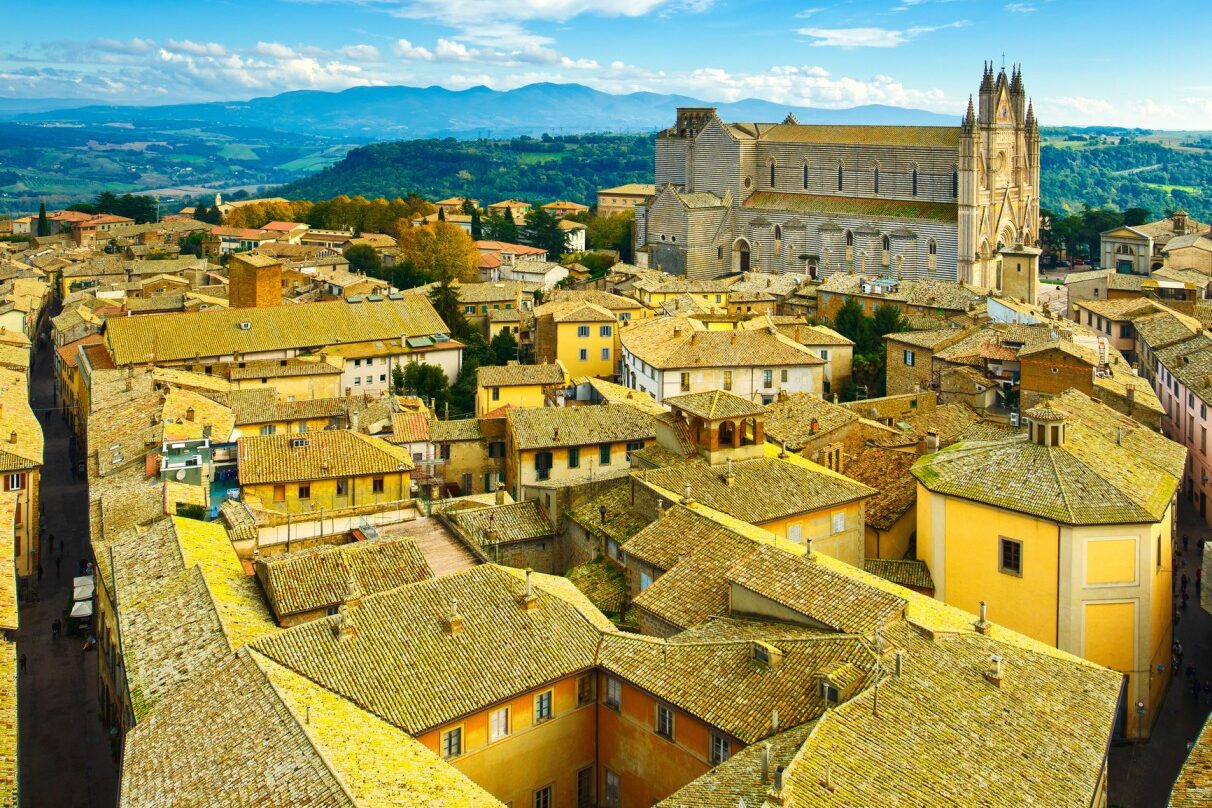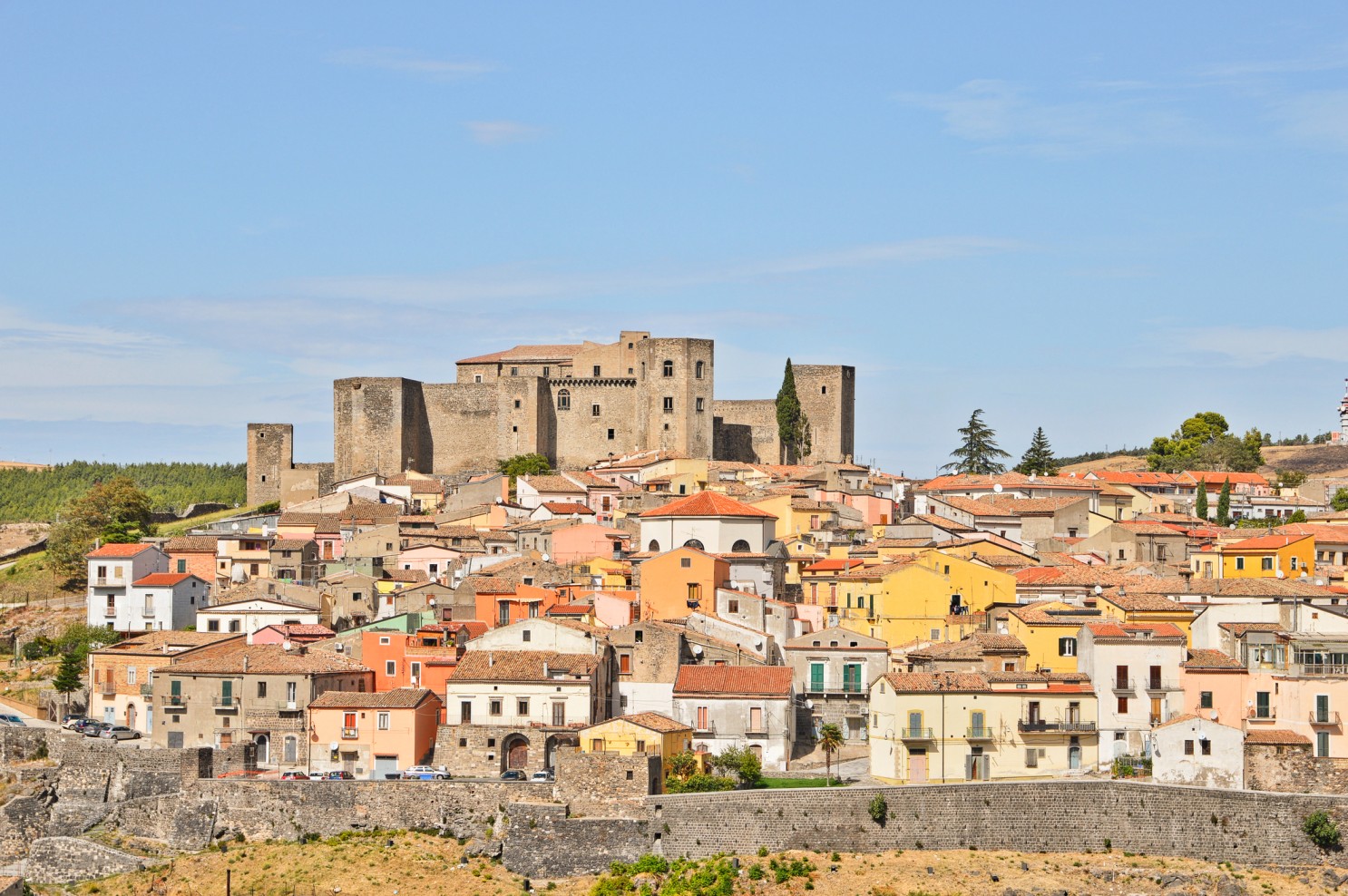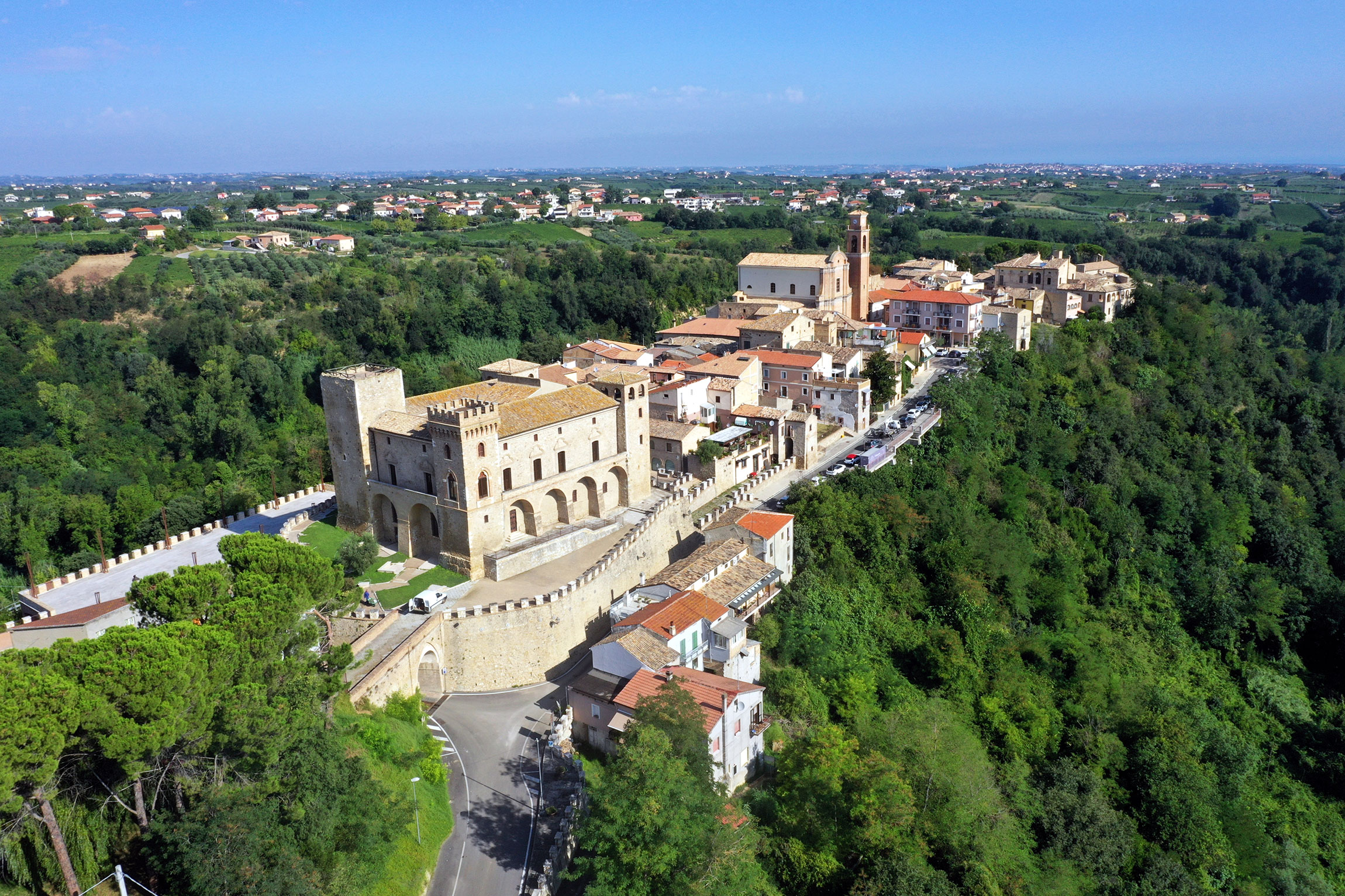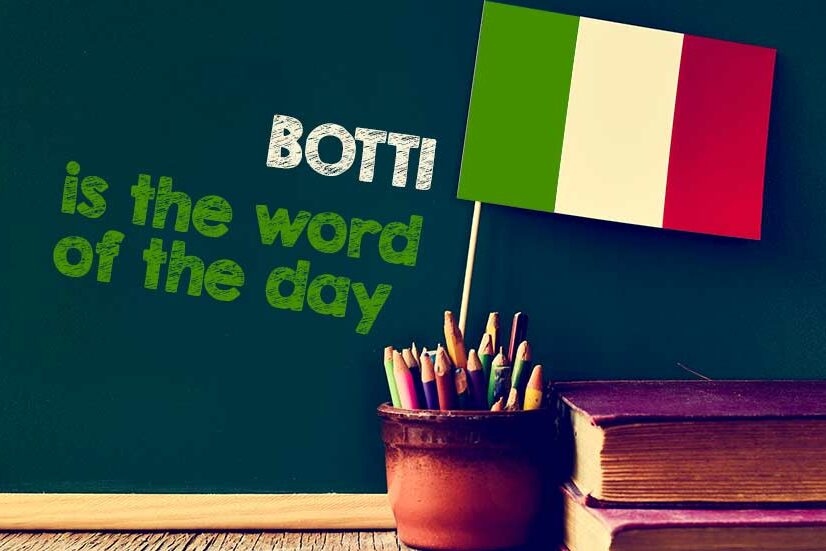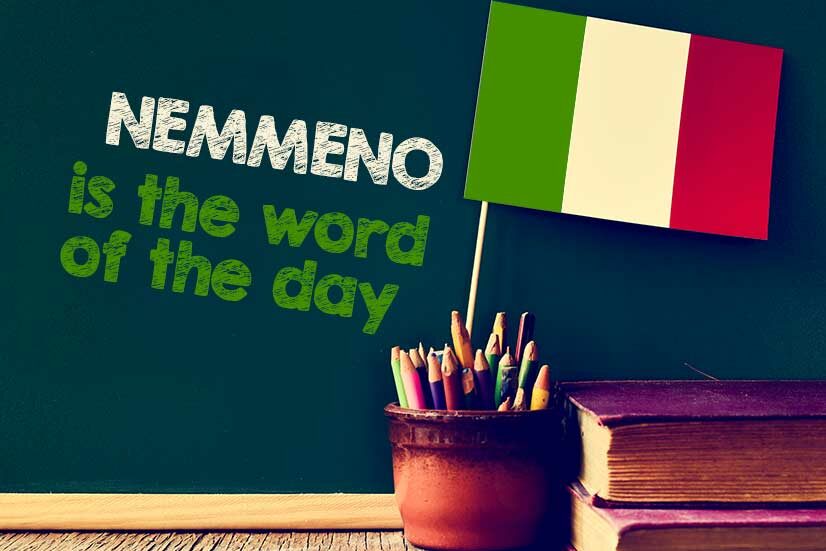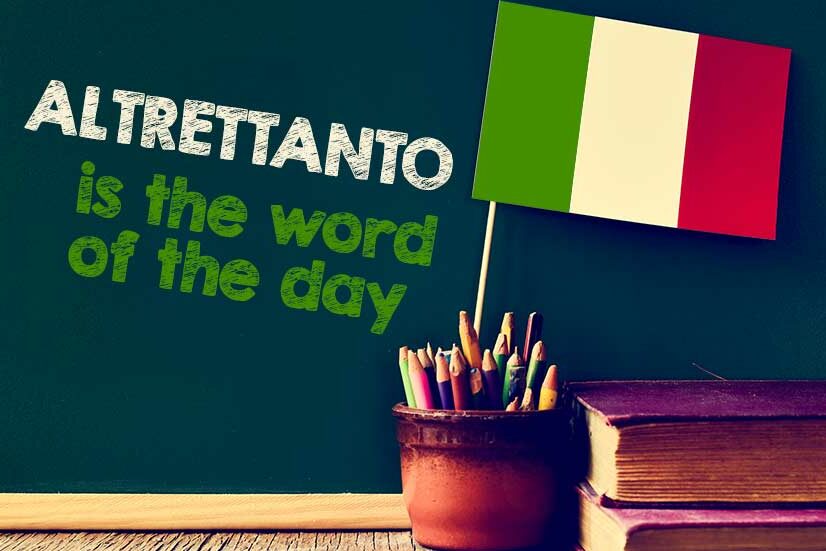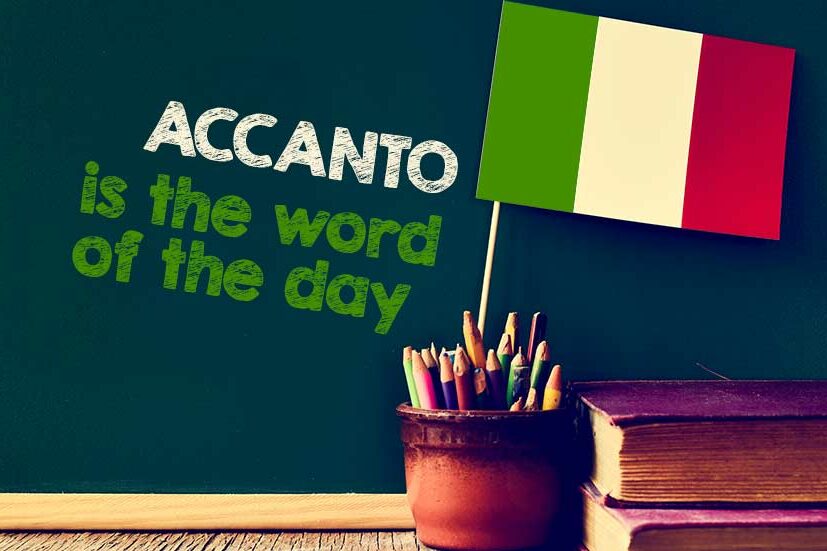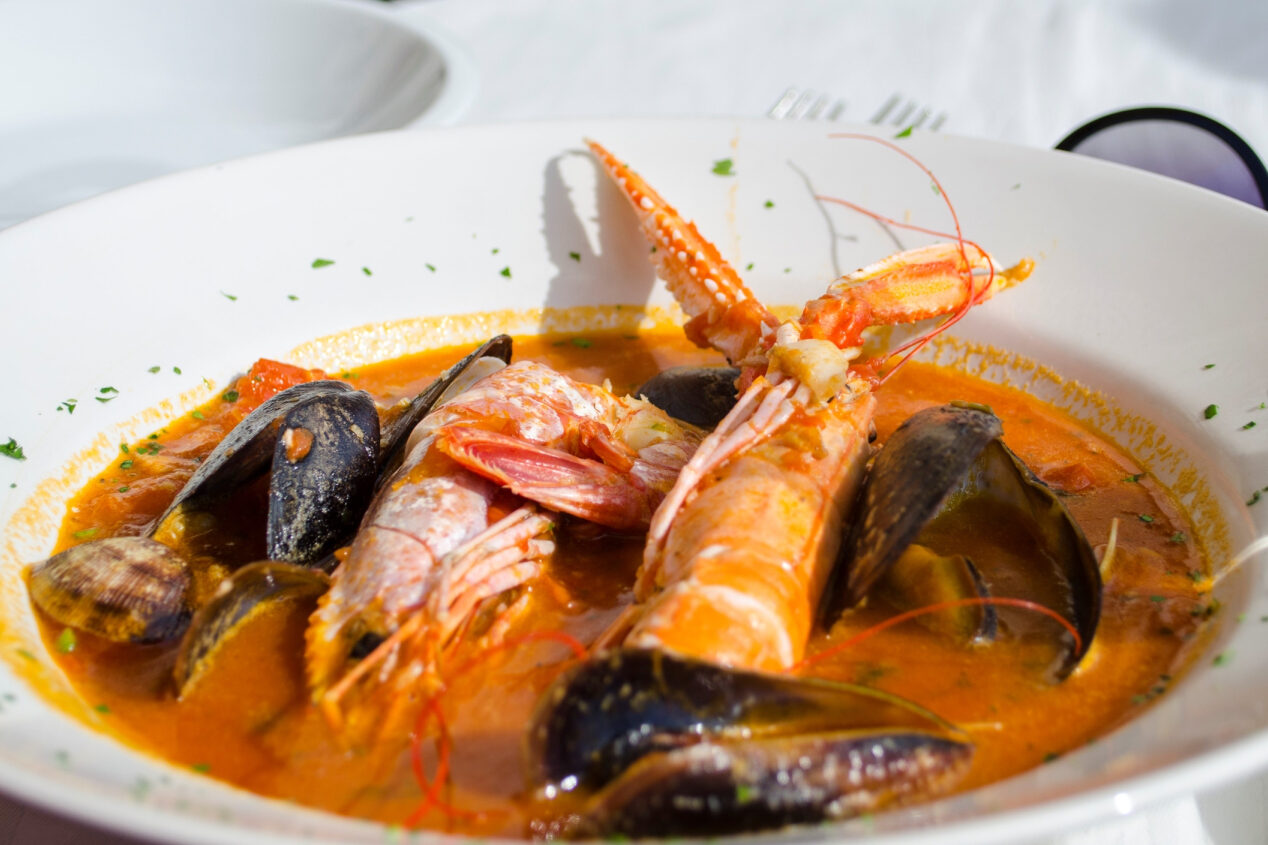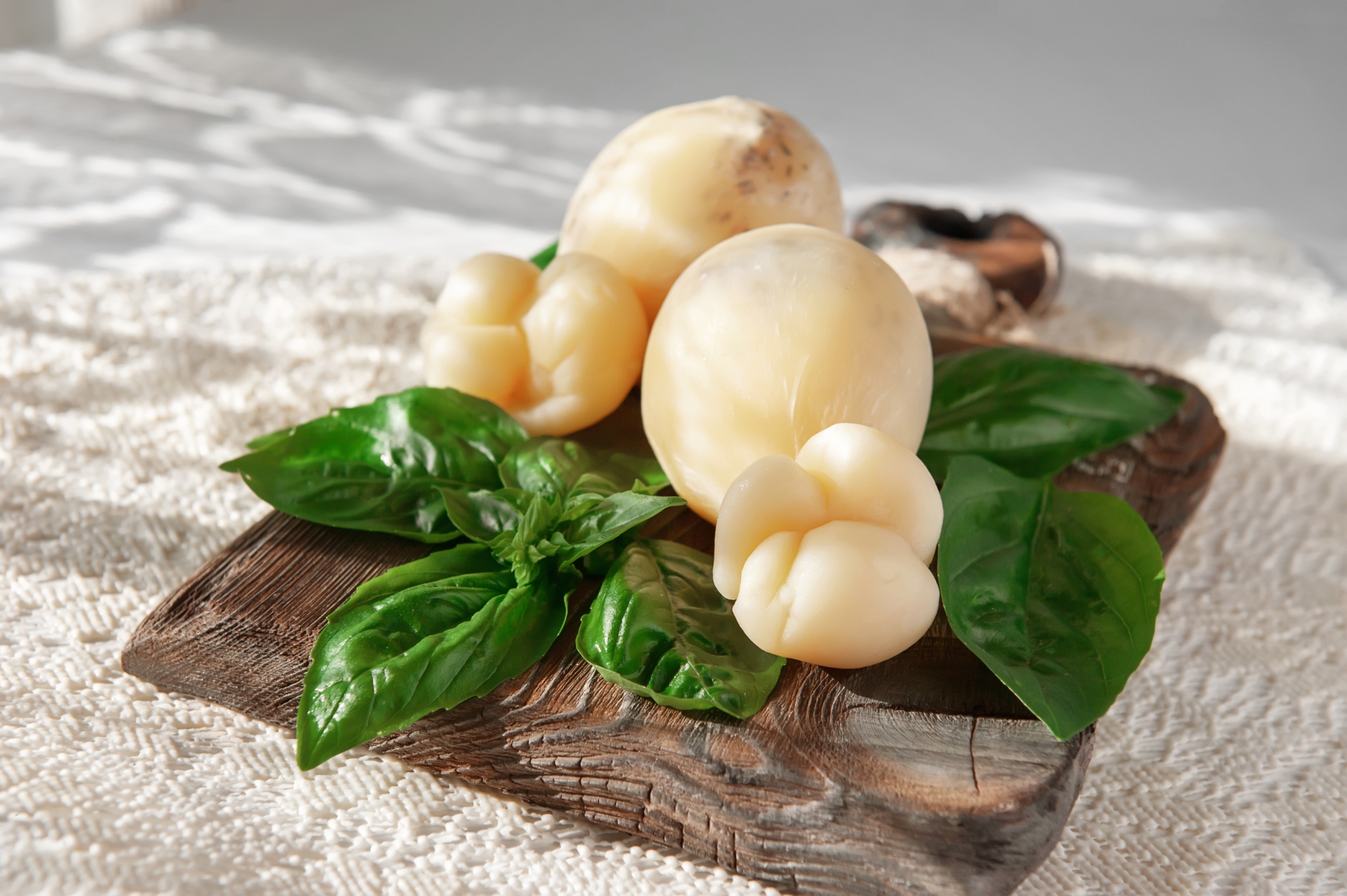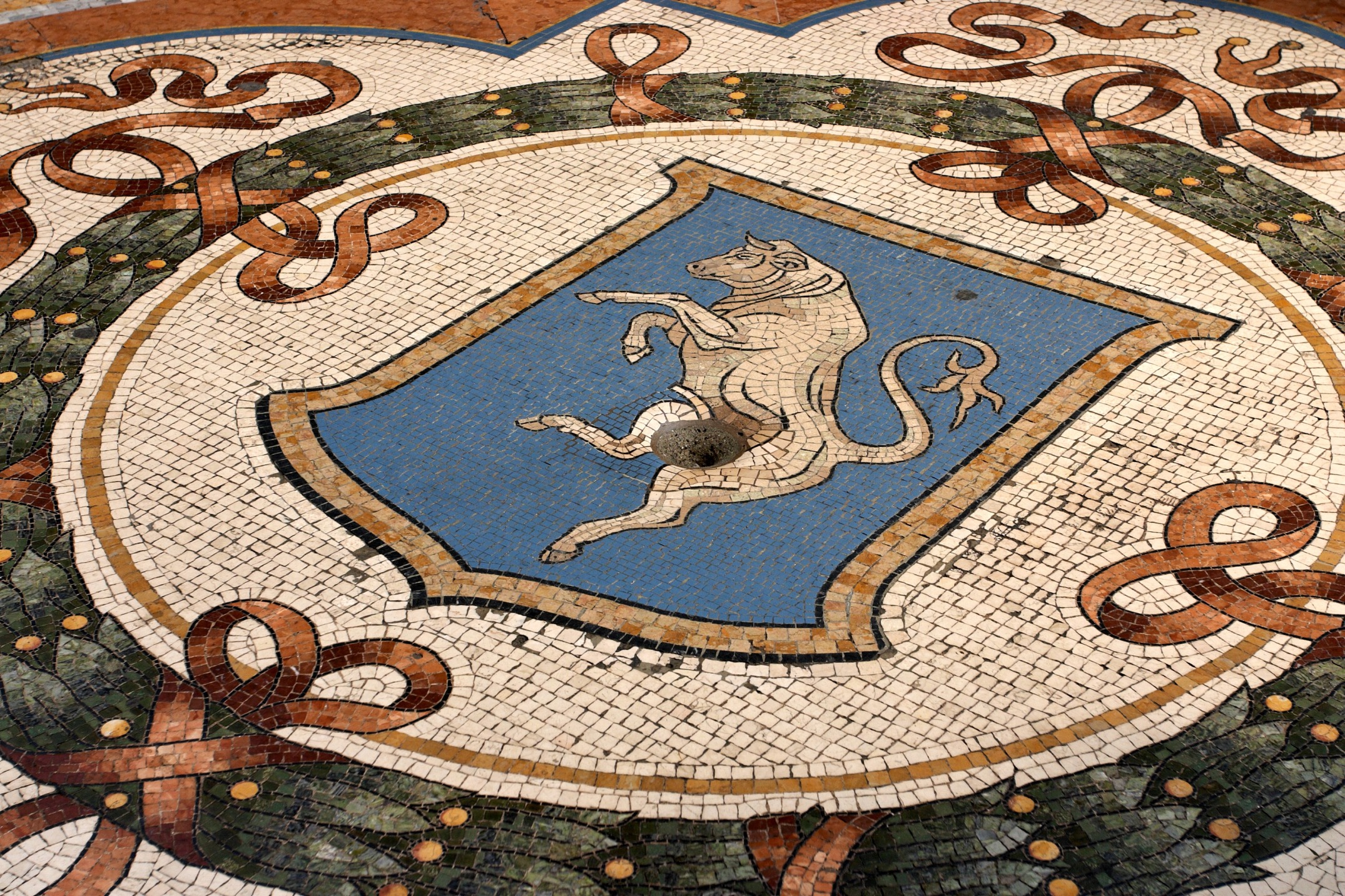Mozzafiato (moh-tsa-feeah-toh) means “breathtaking,” but it’s a bit more gory. While, in English, something that surprises or emotions you “takes your breath away,” in Italian it cuts it off your lungs. Because that’s what mozzafiato literally means!
The verb mozzare, of which our mozzafiato is a compound, means “to cut off,” “to severe” in a very neat, drastic way. If you look at it closely, it may remind you of an Italian word you definitely know and love, especially on your pizza: mozzarella. Indeed, the gooey, creamy cheese gets its name from the very action its makers carry out to give it its traditional ball-shaped appearance.
Unlike the vast majority of our lexicon, mozzafiato doesn’t have ancient Latin origins; instead, it entered our vocabulary only in the 1960s. Some linguists say that the idea of “mozzare il fiato” comes from a very precise physical response our body has when we have the misfortune to be punched in the stomach, and our diaphragm contracts into rigidity, taking our breath away for a fraction of a second.
Mozzafiato is a commonly used adjective, popular in all contexts and registers: we use it when talking about something or someone of incredible beauty (Roma è una città di una bellezza mozzafiato, “Rome is a city of breathtaking beauty,” but also: Che bellezza mozzafiato quell’attrice!, “that actress! What a breathtaking beauty”).
Mozzafiato can be used literally and in a more hyperbolic way: when you run as fast as an antelope to catch that train, you’ve fatto una corsa mozzafiato, you’ve had a run that left you breathless (and possibly in need of a seat and a bottle of water, of course). If you’re in Florence, and take the afternoon to visit the Giardini di Boboli, you’re going to be rewarded with a vista mozzafiato, a breathtaking view, over the city.
Why is Italy so comfortable with the expression, you say? Well, because it must be one of the most exploited adjectives out there to associate with the country. Think about it: we use it for its art, but also for its natural beauties. And let’s be honest, “mozzafiato” is one of the first words coming to mind when thinking of an Easter Sunday’s food spread at our grandmother’s place, even if just to describe the placid feeling of fullness and content spreading upon us once it’s all over: sitting on that couch, waiting for caffé, so full da avere il fiato mozzo, to be breathless.
Indeed, the verbal locution mozzare il fiato is also very common, and it is used in the same way: da qui c’è una vista da mozzare il fiato (“the view from here takes your breath away”).
As a locution — but not as an adjective! — you’ll also encounter the milder versions of mozzare il fiato, togliere il fiato, which translates literally with “taking one’s breath away.”
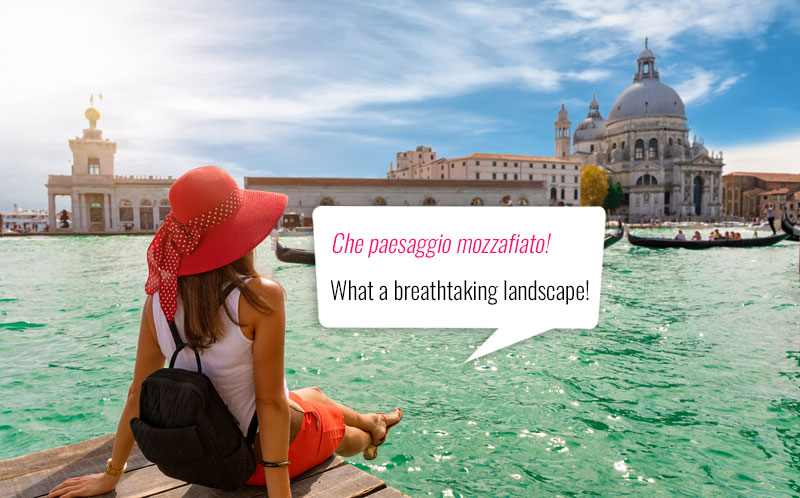
— Che paesaggio mozzafiato!
— What a breathtaking landscape!

— La sorpresa della tua risposta mi ha mozzato il fiato in gola
— Your answer was so surprising it took my breath away

–– Che film mozzafiato, pieno di colpi di scena!
— What a breathtaking movie, filled with plot twists!
